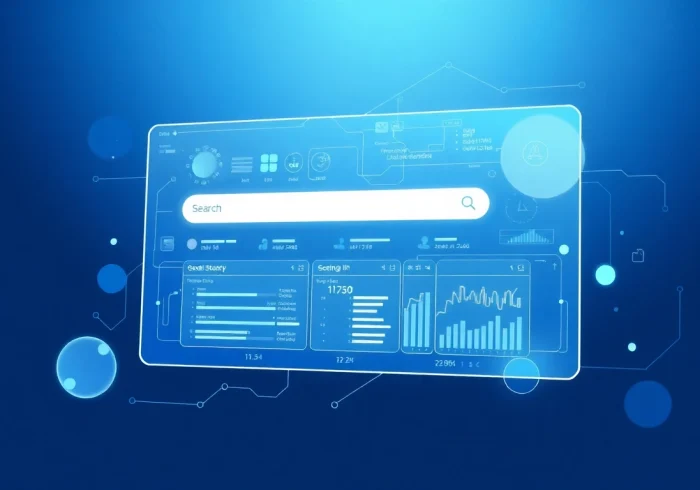Introduction to the PHP Web Development Course
The PHP web development course is a comprehensive program designed to equip aspiring developers with the necessary skills and knowledge to build dynamic websites and web applications. PHP, which stands for Hypertext Preprocessor, is a widely-used open-source scripting language that is particularly suited for web development. With its versatility, speed, and robust community support, it’s no wonder that mastering PHP is a valuable asset for any web developer. Whether you’re a complete beginner or looking to upskill, this course serves as a pathway into the world of web development, enabling you to create interactive and data-driven sites. Let’s delve deeper into what PHP is and why this PHP web development course is essential for your career growth.
What is PHP?
PHP is an open-source server-side scripting language primarily used to develop dynamic and interactive web pages. Originally created by Danish-Canadian programmer Rasmus Lerdorf in 1994, PHP has evolved into a robust language that powers numerous websites, including some of the largest platforms in the world. Its seamless integration with HTML, user-friendly syntax, and extensive libraries make it a favorite among developers. With its ability to connect to various databases and facilitate user authentication, PHP continues to be indispensable in web development.
Importance of PHP in Web Development
The significance of PHP in the realm of web development cannot be overstated. Several factors contribute to its importance:
- Ease of Use: PHP is easy to learn for beginners, thanks to its straightforward syntax. Even those with minimal programming knowledge can quickly grasp its concepts.
- Cross-Platform Compatibility: PHP runs on various platforms, including Windows, Linux, and macOS, making it a versatile choice for developers.
- Vast Community Support: The PHP community is large and active, providing a wealth of resources, tutorials, and forums where developers can seek help and share knowledge.
- Powerful Frameworks: PHP supports numerous frameworks like Laravel, Symfony, and CodeIgniter, which simplify the development process by providing pre-built modules and libraries.
Who Should Enroll in the PHP Web Development Course?
This PHP web development course is ideal for a wide range of individuals:
- Beginners: Those who are just starting their tech journey will benefit from the foundational knowledge offered in this course.
- Career Changers: Individuals looking to transition into web development from other fields can acquire relevant skills to embark on a new career path.
- Web Development Enthusiasts: Hobbyists and professionals wanting to enhance their web development skill set will find the content valuable.
- Small Business Owners: Entrepreneurs seeking to build and maintain their own websites can empower themselves with the knowledge gained from the course.
Getting Started with PHP
Setting Up Your Development Environment
To dive into PHP programming effectively, setting up a reliable development environment is crucial. This involves installing the necessary software and tools:
- Install a Local Server: Use software like XAMPP or WAMP, which provide an easy-to-use local server environment to run PHP applications.
- Choose a Text Editor or IDE: While you can use basic text editors like Notepad++, consider utilizing Integrated Development Environments (IDEs) like Visual Studio Code, PHPStorm, or Sublime Text for enhanced features.
- Learn Basic Command Line: Familiarity with the command line can be beneficial for running PHP scripts and managing files efficiently.
Once you have set up your development environment, you are ready to start coding in PHP.
Fundamental PHP Syntax and Structure
Understanding PHP syntax is the first step in writing effective code. PHP script generally starts with ``. Here are some fundamental concepts:
- Variables: Variables in PHP start with a dollar sign ($) and can hold various data types.
- Control Structures: PHP offers control structures such as if-else statements, switch cases, and loops (for, while) to manage the flow of the program.
- Functions: Functions in PHP allow code reuse and modularity. A function is defined using the syntax `function functionName() { // code }`.
Mastering these basics is crucial for any aspiring PHP developer, as they form the foundation of more complex applications.
Common PHP Functions and Their Applications
PHP comes with a plethora of built-in functions that simplify various tasks. Here are some common functions and their applications:
- String Functions: Functions like `strlen()`, `strpos()`, and `str_replace()` are vital for manipulating string data in web applications.
- Array Functions: Functions such as `array_push()`, `array_merge()`, and `count()` enable effective management of array data structures.
- Date and Time Functions: PHP provides functions like `date()` and `strtotime()` to handle date and time easily.
Understanding and utilizing these functions will enhance your efficiency and effectiveness as a developer.
Intermediate PHP Concepts
Working with Databases using PHP
Databases are integral to web applications, and PHP provides a straightforward way to interact with them, primarily through MySQL. To connect PHP with MySQL, you typically follow these steps:
- Establish a Connection: Use `mysqli_connect()` or `PDO` to connect to your database.
- Executing Queries: Utilize SQL statements with functions like `mysqli_query()` to manipulate and retrieve data.
- Fetch Results: Methods such as `mysqli_fetch_assoc()` allow you to retrieve the results of your queries as an associative array.
Database interactions are critical in building applications with user data management, session handling, and more targeted functionalities.
Understanding PHP Sessions and Cookies
Managing user sessions and storing data on the client side are crucial for user interaction on websites. PHP sessions and cookies are vital components:
- Sessions: Sessions allow you to store user data across multiple pages. Implementing sessions in PHP is done using the `session_start()` function.
- Cookies: Cookies store small pieces of data on the client’s machine and can be accessed on subsequent visits. Use the `setcookie()` function to create a cookie.
Effective use of sessions and cookies enhances user experiences, such as maintaining login states and personalizing content.
Error Handling and Debugging Techniques
Debugging is a crucial skill for developers. PHP offers various error handling techniques to minimize and troubleshoot issues:
- Error Reporting: Enable error reporting with `error_reporting(E_ALL);` to display all errors during development.
- Exception Handling: Use try-catch blocks to gracefully handle potential errors while executing code.
- Using Logging: Utilize `error_log()` to log errors to a file, allowing you to analyze issues later.
Developing strong debugging skills is essential for delivering robust, error-free applications.
Advanced PHP Topics
Object-Oriented Programming in PHP
Object-oriented programming (OOP) enhances the organization and structure of PHP code. Key concepts of OOP include:
- Classes and Objects: Classes define blueprints for objects that encapsulate properties and methods.
- Inheritance: Inheritance allows classes to inherit properties and methods from other classes, promoting code reuse.
- Polymorphism: This principle allows for methods to be overridden in derived classes, providing flexibility in coding.
OOP principles play a significant role in developing scalable and maintainable applications, making it a fundamental skill for advanced PHP developers.
Building Secure PHP Applications
Security is a key concern for any web application. Understanding how to secure PHP applications against common vulnerabilities is paramount:
- Input Validation: Always validate user input to prevent SQL injection and cross-site scripting (XSS).
- Password Hashing: Use functions like `password_hash()` and `password_verify()` to securely manage user passwords.
- HTTPS Implementation: Make sure your applications communicate over HTTPS to encrypt data transmission.
Embedding security practices in your web applications is essential to protect user data and maintain trust.
Utilizing PHP Frameworks for Development
PHP frameworks like Laravel, Symfony, and CodeIgniter provide powerful tools for building applications efficiently. Some benefits include:
- Rapid Application Development: Frameworks come with built-in functionalities, significantly speeding up the development process.
- Structured Code: They encourage organizing code, making it easier to maintain and collaborate with teams.
- Security Features: Frameworks typically incorporate security features that protect against common vulnerabilities.
Adopting a framework can elevate your development process, helping to create well-structured and maintainable applications.
Completing Your PHP Web Development Course
Final Project: Developing a Web Application
As you near the conclusion of the PHP web development course, you’ll undertake a final project where you will develop a fully functional web application. This project will require you to:
- Plan Your Application: Identify the purpose and requirements of your application.
- Design the Architecture: Create a structured plan for how different components will interact.
- Coding and Implementation: Apply the PHP skills learned throughout the course to build the application.
The final project serves not only as a demonstration of your skills but also as a portfolio piece that highlights your proficiency to prospective employers.
Portfolio Development and Key Takeaways
Upon completion of the course, you will have a collection of projects to include in your portfolio, showcasing your capabilities as a PHP developer. Key takeaways from the course include:
- Practical experience with both fundamental and advanced PHP topics.
- Understanding of web application architecture and design.
- Knowledge of securing web applications against vulnerabilities.
A strong portfolio is your ticket to securing job interviews and landing roles as a PHP developer.
Continuing Your PHP Learning Journey
The end of the course is just the beginning. To stay relevant in the ever-evolving field of web development, consider the following:
- Follow PHP Updates: PHP is constantly evolving. Stay updated on new features and versions.
- Engage with the Community: Join forums and attend PHP meetups to network and learn from others.
- Explore Advanced Topics: Look into advanced topics like RESTful APIs, MVC architecture, and testing with PHPUnit to deepen your understanding.
Embracing a mindset of continuous learning will ensure you remain competitive and knowledgeable in your programming career.



